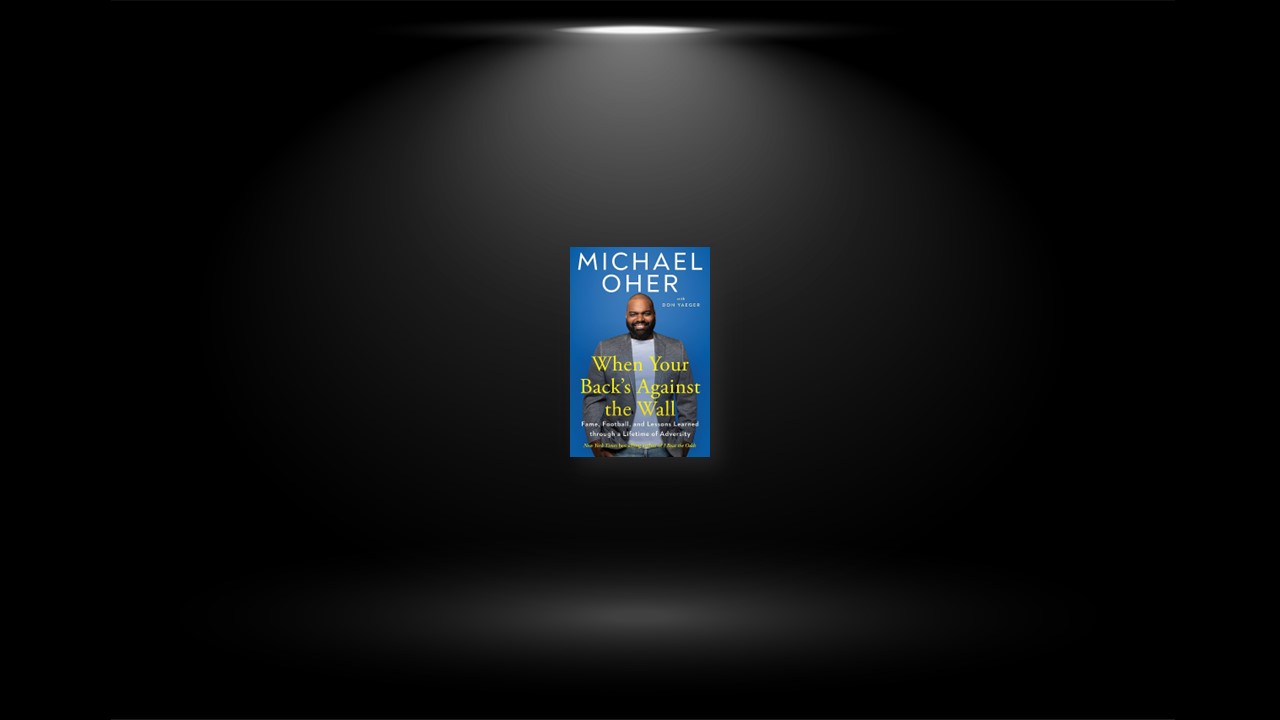It Starts with Want-To
without repetition, it’s hard to master anything. And without want-to, you will not be willing to put in those reps. You will be bored; you will make excuses. Dedication and daily sweat are the only keys to long-term success. Sure, there are those flash-in-the-pan moments of talent or genius, but for lasting accomplishments, you’ve got to be consistent. For those in the back, remember consistency (repetition) is essential in anything you want to achieve.
When your back’s against the wall, the very first thing you need is want-to. Want-to is your ignition, but it’s also your engine. Certain seasons of life are going to test your want-to. Hardship will test it. But want-to will create endurance. It won’t always guarantee you’ll be a winner, but it will almost always guarantee you’ll be a survivor.
Build Structure in the Struggle
When you find yourself backed up against a wall, building an organized approach through practiced discipline and purposeful action toward a solution gives you the road map you need to move forward. As with anything in life, there are many factors that play into your experiences. That is why, unlike homework, real-life scenarios require you to seek help and get others in the boat with you.
It takes humility to ask a question, and it takes humility to listen to the answer. It also takes discipline to catalog what you’ve learned. But most important, it isn’t about what you know, it’s about understanding when to seek help and knowing who to go to.
There is never a time in your life when you will face a challenge or wall that you were meant to surmount on your own. We were designed for community and relationship. Tackling problems is supposed to be a team effort. So surrounding yourself with the right people to depend on for your life’s challenges becomes as important as injecting structure into your struggle.
Have a Small Circle
Relational energy is a resource. True friendship lets people in, lets them sharpen you. And that can be dangerous, and sometimes it can hurt. Like the proverb says, “The wounds of a friend are faithful.” There is a need in this world for basic human respect. For us to see people for who they really are. Your circle can be anywhere. Your people—the people you really gel with—might be in an unlikely place. You’ve got to have your head up for them.
And you don’t need that many close friends. When times really get rough, if you think the people you can count on are on two hands, you’re mistaken. Your true circle is actually small. Look for quality over quantity. A circle is just one resource in your tool belt of life. Even though it is one of your most powerful resources, it’s never your only option.
Sometimes the thing that separates those who make it in those back-against-the-wall moments simply comes down to their ability to understand what they have and how they can use it.
Use What You’ve Got
We might have all been created equal, but the situations we were born into are not. If you were lucky enough to start off ahead, if you have extraordinary natural ability, if you have resources and mentorship—use those advantages. Seize them, don’t squander them. Let them lead you to excel, and then look back. Turn around and help the next guy.
But if life had you starting several steps behind everybody else, if your support system is ordinary, or just plain bad, you still have to run your race. So run as hard and as fast as you can. Take stock of everything around you and use it—all of it.
it’s not always about the raw materials; it’s what you do with them. Average with the right guidance will evolve into excellence. And in football, if you’ve got good coaching, you can get better. If you’ve got the right philosophies, techniques, and fundamentals. it’s possible to take what you have all the way to a championship.
Sometimes working with ordinary means not overcomplicating things. It means you can keep it simple, but be consistent and flawless in your technique.
Be Relentlessly Positive
Think of the thing in your life, the deepest unresolved hurt, the thing that’s the hardest to forgive. Put your hands out and imagine it sitting there in your palms. Now drop it. Whatever hurt you are holding on to, picture yourself physically releasing it.
If the person you are forgiving is unrepentant, you will never forget the hurt. I think people who tell you, “Forgive and forget,” are fools. The wound will be crystal clear in your memory, but if you keep actively releasing the negativity—stop remembering and recounting the wrongs—you can find peace. You can forgive. Not because someone else deserves it, but because you deserve it.
The late Colin Powell, former secretary of state, is often quoted for his “13 Rules of Leadership.” His number one rule is this: It ain’t as bad as you think. It will look better in the morning.
Heal Yourself First
This one is perhaps the most crucial: First, take care of your health. Everything else comes after.
If you are in a dark time right now, acknowledge what you are feeling. Seek help. Don’t wait. Find that one person who truly listens to you. Ignoring the problem doesn’t make it go away, and playing through the injury doesn’t make you tough.
Once you do find those who are willing to walk with you on your journey to healing, take note of your surroundings. Know that it is to your benefit to set healthy boundaries during your season of healing, if it means that it gives you the space to recover. The last thing you need while trying to heal is input from the wrong influence. The idea is to protect yourself so you can regain the strength to face the other walls in your life with a clear mind. In prioritizing your health, you will equip yourself with the best tools for overcoming other obstacles that lie before you—a strong mind and body.
Your Answers Are in the Mirror
We can all look and find the fault of others in a situation. The truth is, the ones who can rise above a situation are the ones who can acknowledge their own hand in it. Their focus becomes bettering themselves and what they can control. Sometimes you can face situations where you are not at fault. Many reading this book might have those experiences, whether it is being a victim of rape, abuse, or other violence.
The author doesn’t mean to downplay the atrocities you experienced in those moments; this lesson might not fully apply for those experiences. The lesson is meant to be your way forward. It’s a way to ensure that others don’t get to lay a permanent hold on you. By taking responsibility for the things you can control, like your actions, reactions, thoughts, and character, and putting your focus on what you can do better there, you will find your way forward again.
Some of you might be saying, “What if I look in the mirror and I can’t find the answers?” Ask again. The answer will come in time. Before too long, you will begin to see the person you were meant to be. You take control of yourself and your life when you can humble yourself enough to see your faults, forgive them, and then change.


